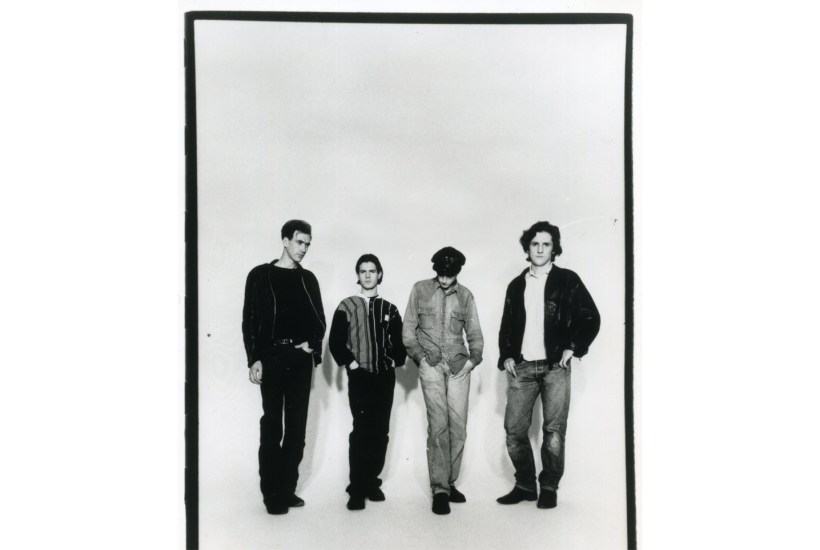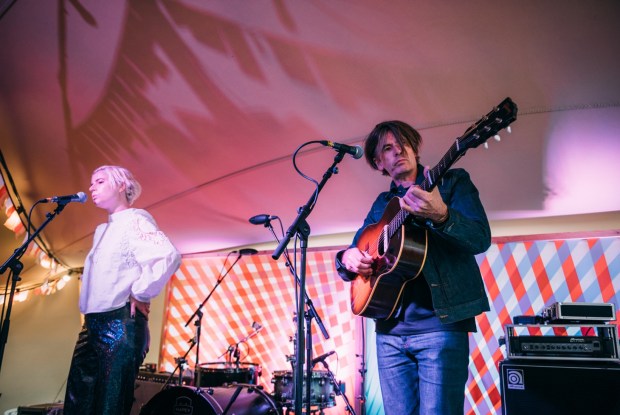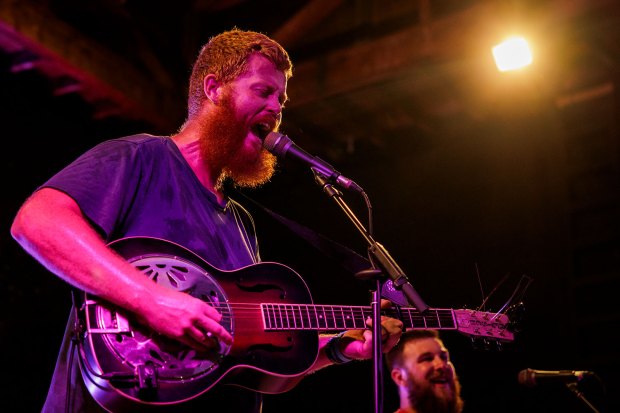Years ago, I asked Robert Plant what he felt about the world’s love of ‘Stairway to Heaven’. He said he no longer really knew what the song was about, and it didn’t mean an awful lot to him. But, he added, that didn’t really matter because the people who loved the song had given it their own meaning. Songs don’t have to be as ubiquitous as ‘Stairway to Heaven’, however, to work their way into your soul. It’s perhaps even easier to develop a personal connection with a song that one doesn’t have to share with the entire world.
Last weekend I went to two shows that were very specifically about the past. At the Union Chapel – so cold that much of the crowd kept on their coats and woolly hats – I saw three guitarists chatting amiably as they cycled through their respective back catalogues. They weren’t shilling new albums, they weren’t promoting anything. They were simply playing for the absolute pleasure of it.
I have written about Norman Blake (of Teenage Fanclub) and Bernard Butler in these pages before, but James Grant was just a name to me. He was in a couple of never-quite-were bands in the 1980s – Friends Again and Love and Money. He’s released a few solo records since then that, to be honest, I wasn’t even aware existed (since this show I’ve been listening a lot to his 2013 album Sawdust in My Veins, which I commend to you wholeheartedly, especially if you ever liked Richard Hawley). His songs, which were glorious, were unexpected highlights, but because they were new to me they weren’t accompanied by the accumulated memories of some of the other songs.
Performing rock songs in the stripped-down ‘songwriters’ circle’ format can often rob them of their power, but that wasn’t the case here. While Blake and Grant played acoustics, Butler had his red Gibson 355 and some pedals, and his colouring transfigured songs I loved. Teenage Fanclub’s first single ‘Everything Flows’ was transformed from a grungy stomp into something delicate and wistful, with Butler painting filigrees around it. His own masterpiece ‘Yes’ perhaps lost something from not having the extraordinary voice of its original singer, David McAlmont, but it’s so sturdy it’s almost impossible to do it damage.
Memories kept flooding through my head: of courting my wife decades ago, of friends gained and friends lost, of disasters and triumphs. It wasn’t just a lovely gig, it was a gig filled with love – because I was certain almost everyone else there was feeling the same way. You could see it in the way different pockets of people in the crowd reacted to different songs.
This was also the case, but more so, the following night. The Loft are no one’s idea of a household name, yet they occupy a small but important place in indie music history: they were the first decent band on the storied Creation label, which released ground-breaking records by My Bloody Valentine and Primal Scream, signed Oasis, and was home to Teenage Fanclub. But the Loft were the first band to really capture Creation’s mission statement of combining the music of 1967 and 1977: psychedelic pop played with the DIY attitude of punk rock.
The Loft split acrimoniously in 1985, when their singer, Pete Astor, announced on stage at Hammersmith Palais that the crowd were watching their final show, something the rest of the band had not been aware of. Over the past 17 years, they’ve had occasional reunions – to allow a small number of other middle-aged people to relive their youths.
Among the 300 or so at the Moth Club were novelists, broadcasters, music-biz impresarios – and lots of other people who just wanted to feel 21 all over again. Astor acknowledged that; playing these songs, he said, made him feel like the young man who had written them. ‘Up the Hill and Down the Slope’ will never not sound wonderful. Their cover of Richard Hell’s ‘Time’ was a whole lot better than the original. There were oddities. Seeing a man in his late fifties sing a song called ‘Worm in My Brain’ that ends with the words ‘wriggle wriggle wriggle wriggle’ risked feeling childish. But we weren’t worried about being cool (Astor used to look as though he spent most of his day worrying about being cool). We were kids again, and revelled in the juvenilia.
Got something to add? Join the discussion and comment below.
Get 10 issues for just $10
Subscribe to The Spectator Australia today for the next 10 magazine issues, plus full online access, for just $10.
You might disagree with half of it, but you’ll enjoy reading all of it. Try your first month for free, then just $2 a week for the remainder of your first year.














Comments
Don't miss out
Join the conversation with other Spectator Australia readers. Subscribe to leave a comment.
SUBSCRIBEAlready a subscriber? Log in